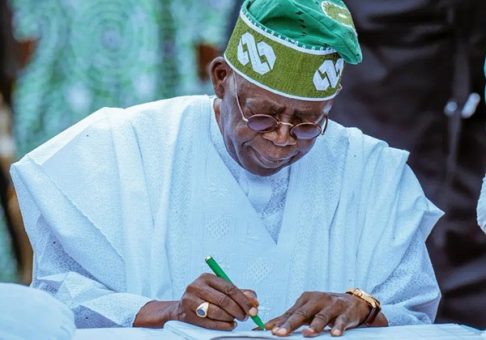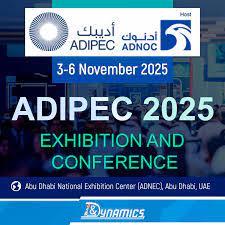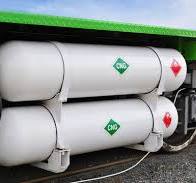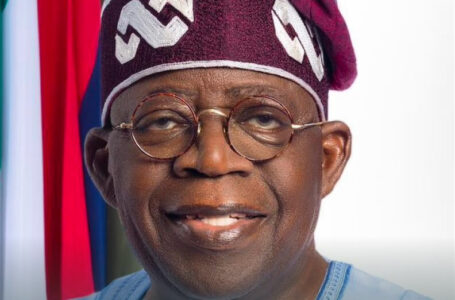REA Reconfirms Commitment to Energize Underserved Communities Across Nigeria
ADIPEC 2025: Nigeria’s energy reforms attract over $8bn investments – Presidential Aide

.as Ministers advocate balanced energy transition anchored on security, affordability
ADIPEC: The Nigeria’s Special Adviser to the President on Energy, Mrs Olu Verheijen, says the ongoing energy sector reforms under President Bola Tinubu’s administration have attracted more than eight billion dollars in new investments within one year.
Verheijen made this known in an interview with the News Agency of Nigeria (NAN) on the sidelines of the Abu Dhabi International Petroleum Exhibition and Conference (ADIPEC) 2025 in the United Arab Emirates (UAE) on Wednesday.

She said that the reforms were designed to reverse decades of decline in Nigeria’s oil and gas sector and reposition the country as a competitive global energy investment destination.
“When the President came into office, it was clear that we needed to halt the decline in oil and gas investments.
“The passage of the Petroleum Industry Act (PIA) was a major milestone, but we realised that expected investments were still slow to materialise.
“To address this, the President issued a series of directives to accelerate reforms, improve fiscal incentives, and make Nigeria’s projects more competitive globally,” she said.
According to her, the new policies have boosted investor confidence, leading to about five billion dollars in fresh oil sector commitments and an additional three billion dollars in gas investments.
Verheijen explained that the government’s focus on non-associated gas was improving reliability of gas supply for both export and domestic use, particularly in power generation and industrial development.
She said the aim was to ensure more affordable energy, stimulate local industries such as petrochemicals and fertiliser production and expand job opportunities for Nigerians.
“Our vision is not just to export raw commodities but to add value through processing and manufacturing.
“We are now one of Africa’s leading fertiliser exporters and this supports our agricultural sector, boosts yields and creates jobs,” she said.
The adviser noted that the reforms were also stimulating private investment in Compressed Natural Gas (CNG) and Liquefied Petroleum Gas (LPG) value chains to make clean and affordable energy accessible to more Nigerians.

She said that security in the Niger Delta had improved significantly, with more local contractors returning to sites and independent Nigerian operators taking over operations, creating jobs and economic activity in oil-producing communities.
On energy transition, Verheijen said that Nigeria’s strategy was focused on “energy addition” rather than elimination, using gas as a cleaner, transitional fuel.
“Globally, fossil fuels still account for 80 per cent of energy consumption.
“The issue is not to abandon them but to make them cleaner and more sustainable.
“That is why we are reducing gas flaring, promoting gas-based power generation and encouraging cleaner transportation fuels,” she added.
She described Nigeria’s presence at ADIPEC 2025 as an opportunity to showcase “a renewed, re-energised and credible Nigeria” committed to transparent partnerships and regional collaboration.
“We have delivered most of the key energy reforms promised by the President within three years, and that has strengthened our credibility as a global partner.”
Verheijen projected that the ongoing reforms would lead to a more commercially driven national oil company, the Nigerian National Petroleum Company Limited (NNPC Ltd.), and an investment climate that ensures reliable and affordable energy for all Nigerians.
On comments attributed to former U.S. President Donald Trump about alleged religious persecution in Nigeria, Verheijen dismissed such claims as inaccurate.
“Nigeria is a sovereign country committed to protecting the rights and freedoms of all citizens, irrespective of religion.
“While we recognise there are security challenges, these are complex and not driven by religious motives.
“We welcome fact-based engagement with our U.S. partners to address these issues constructively,” she said.
The special adviser reiterated that Nigeria remained committed to maintaining peace, stability and investment confidence in the energy sector.
As Ministers advocate balanced energy transition anchored on security, affordability
Global energy leaders have underscored the need for a just and balanced energy transition that safeguards energy access and security while meeting global climate targets.
Ministers from Nigeria, Montenegro, and Zimbabwe, among others shared their national strategies on Wednesday during a ministerial panel session at the ongoing 2025 Abu Dhabi International Petroleum Exhibition and Conference (ADIPEC).
The News Agency of Nigeria (NAN), reports that the 41st edition of ADIPEC, hosted by the Abu Dhabi National Oil Company (ADNOC), has as theme ”Energy, Intelligence, Impact”.
Speaking on the panel, themed ”Global Shifts: Navigating an Era of Diverging Priorities”, Montenegro’s Minister of Energy and Mining, Admir Sahmanovoc, called for a ”just transition” that prioritises fairness and inclusion.
He said Montenegro was implementing a phased plan to reduce reliance on thermal power, promote renewable alternatives, and support workers affected by energy sector restructuring.
”We already have about 65 renewable projects in our pipeline. Our undersea cable with Italy and a second one under development will double our transmission capacity and strengthen our role as a regional energy bridge,” he said.
Sahmanovoc added that Montenegro was aligning its energy laws with European Union standards and pursuing new partnerships, including a government-to-government deal with the United Arab Emirates.
Zimbabwe’s Minister of Energy and Power Development, July Moyo, identified energy security and affordability as his country’s immediate priorities.
”Like many countries in Southern Africa, we face power shortages that affect mining, agriculture, and industry. To address this, we have opened generation, transmission, and distribution to private participation,” he said.
Moyo explained that Zimbabwe was integrating pension and insurance funding into renewable and infrastructure investments, supported by new government-backed incentives.
”Our capital markets can partner with international investors, and our cost-reflective tariffs are being dis-aggregated across the value chain so investors clearly see their returns.
“Zimbabwe aims to increase non-hydro renewable capacity from 7.8 per cent to 29 per cent within five years,” he added.
Nigeria’s Minister of State for Petroleum Resources (Gas), Ekperikpe Ekpo, emphasised that Africa’s energy transition must reflect the continent’s development realities.
“Energy transition should be sequential, just, and limited, no one-size-fits-all model can be imposed on developing economies.
“Gas is central to our strategy because it supports power, transport, and industrialisation. We cannot decarbonise to poverty,” he stated.
Ekpo said Nigeria’s transition plan leveraged its more than 210 trillion cubic feet of natural gas reserves to drive industrial growth and expand clean cooking access.
He added that the Petroleum Industry Act (PIA) and recent executive orders had created a more attractive investment climate through tax incentives, shorter contracting timelines, and funding mechanisms such as the Midstream and Downstream Gas Infrastructure Fund (MDGIF).
Also speaking, Jassim Alshirawi, Secretary-General of the International Energy Forum (IEF), said the organisation promotes inclusive dialogue between producers and consumers to foster policy predictability and transparency.
He noted that the IEF’s Joint Organisations Data Initiative (JODI) was expanding to include sustainability metrics, providing integrated energy and emissions data for policymakers and investors.
”Diverse perspectives among members are not a failure of cooperation but an opportunity for deeper understanding that drives collaboration and action,” Alshirawi said.
The Secretary-General of the East Mediterranean Gas Forum (EMGF), Osama Mobarez, reaffirmed that natural gas remained essential to achieving both climate and energy security goals.
He said the EMGF’s Decarbonisation initiative, inaugurated in 2022, focused on reducing emissions across the gas value chain while positioning the East Mediterranean as a low-carbon investment hub.
”Gas is the cleanest fossil fuel, and with proven technologies, we can make it even cleaner. Our goal is to produce and deliver gas responsibly while supporting our members with regulatory alignment, technology access, and carbon certification,” he said.
The session concluded with a shared consensus that the global energy transition must be inclusive, balanced, and economically sustainable, with natural gas playing a pivotal role in bridging the global energy divide.






